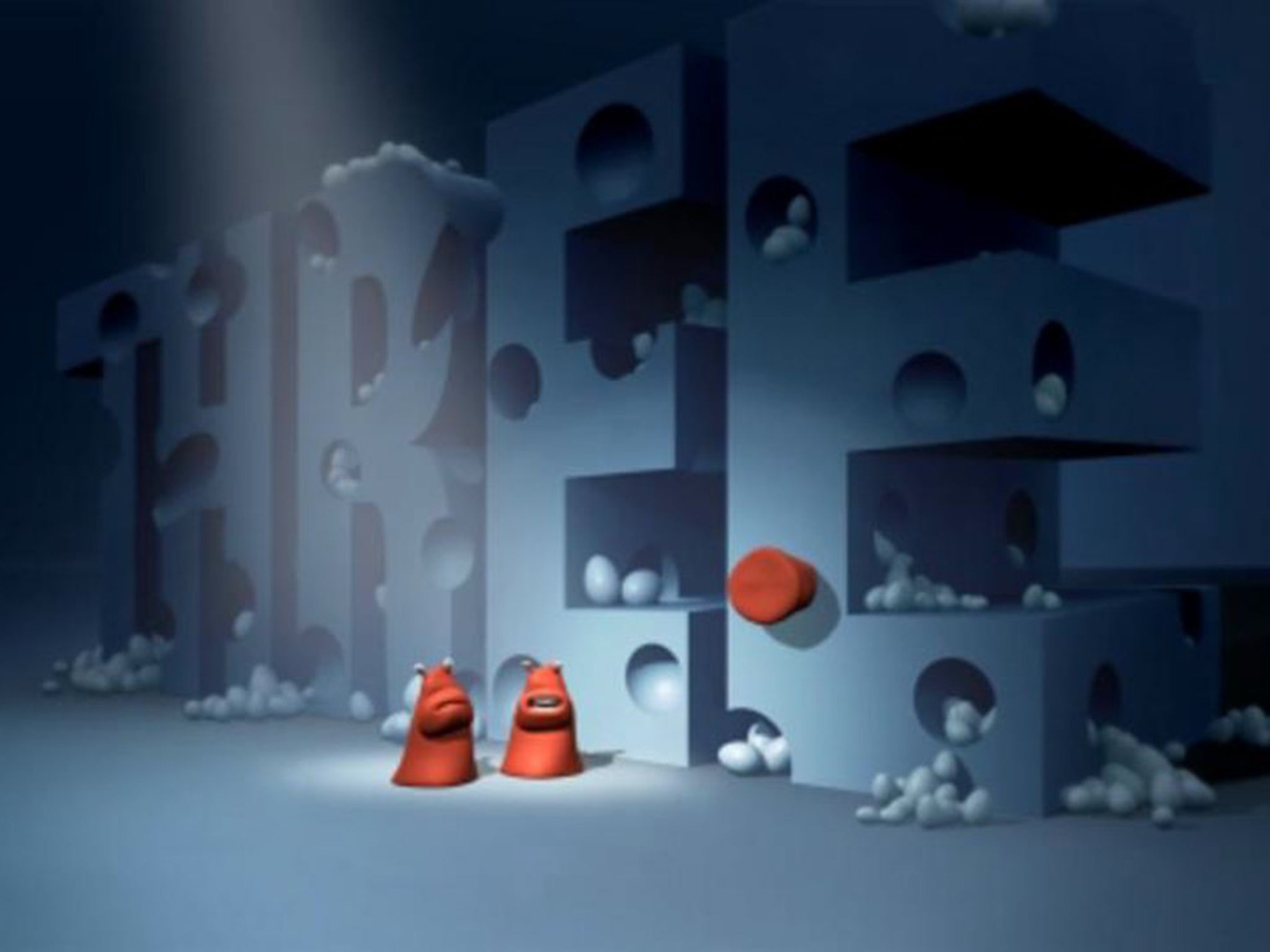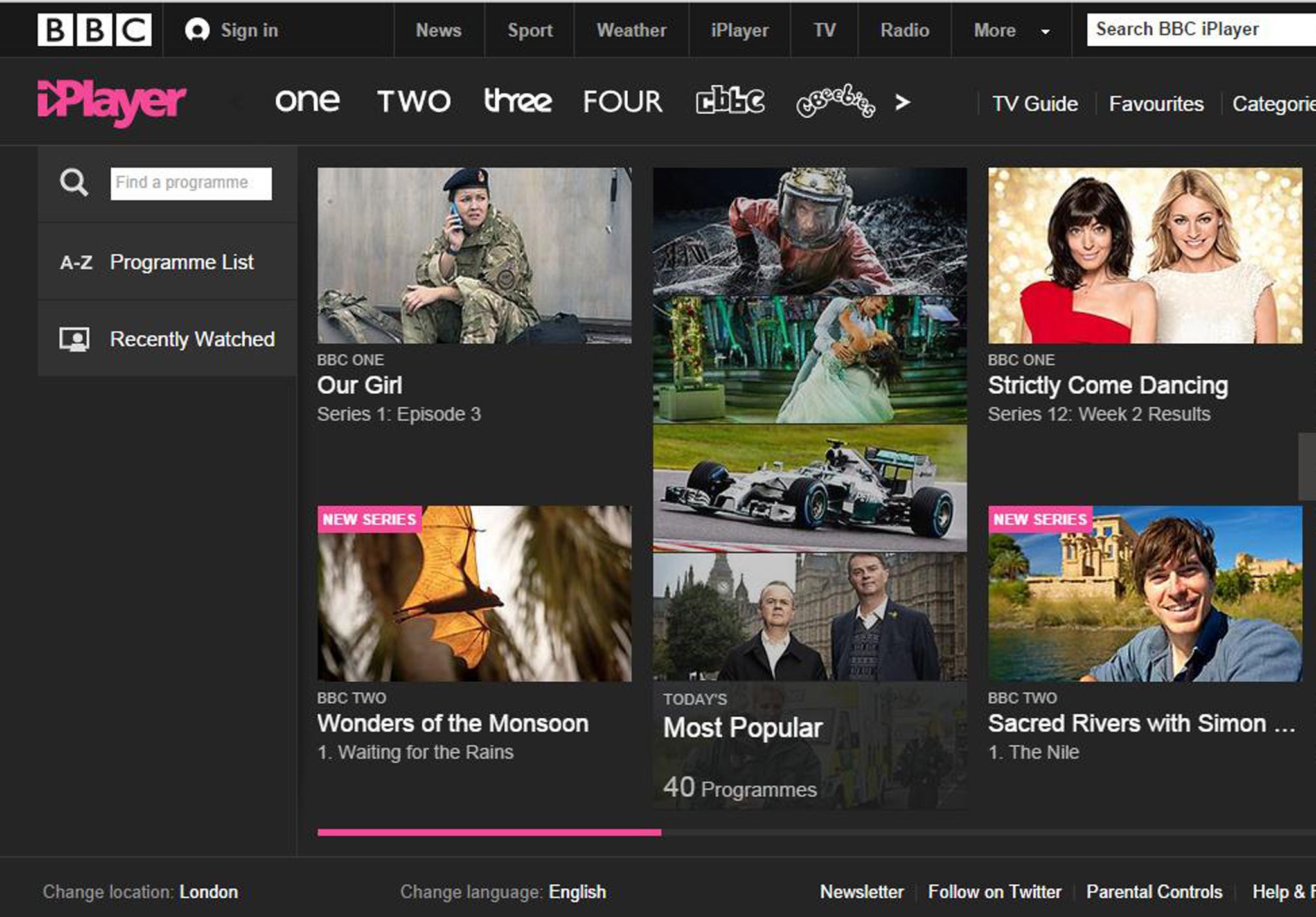BBC3 to be axed as TV channel after Trust approves online move
The new digital channel will save the BBC £50m a year

Your support helps us to tell the story
From reproductive rights to climate change to Big Tech, The Independent is on the ground when the story is developing. Whether it's investigating the financials of Elon Musk's pro-Trump PAC or producing our latest documentary, 'The A Word', which shines a light on the American women fighting for reproductive rights, we know how important it is to parse out the facts from the messaging.
At such a critical moment in US history, we need reporters on the ground. Your donation allows us to keep sending journalists to speak to both sides of the story.
The Independent is trusted by Americans across the entire political spectrum. And unlike many other quality news outlets, we choose not to lock Americans out of our reporting and analysis with paywalls. We believe quality journalism should be available to everyone, paid for by those who can afford it.
Your support makes all the difference.A campaign by stars including Daniel Radcliffe and Steve Coogan to save BBC3 has failed after the BBC Trust announced that the youth channel should cease broadcasting and move online.
The Trust approved proposals from Tony Hall, BBC Director-General, to close BBC3 as a broadcast channel and move the service online. The change would save the BBC £50m a year, he argued, with the majority invested in new drama.
The Trust approved the move in principle after it found that the BBC3 audience was already falling and concluded that its target viewership of those aged 16-34 are increasingly watching video online.
The BBC was “right to anticipate the need to serve this (youth) audience in new ways.”
However the Trust rejected a proposal that BBC3 should be replaced by a new BBC+1 catch-up channel after ruling that it was largely an attempt to maximise ratings.
BBC3 has cost more than £1bn of licence-fee money since its launch in 2003 and faced criticism over shows such as Snog, Marry, Avoid. It has also produced acclaimed programmes such as Murdered By My Boyfriend.

The Trust said there was “clear long-term potential” in moving BBC3 online, which would save £30m a year, in its estimation.
It would be “more distinctive” than BBC3, whose audience reach fell by 4% among 16-34 aged viewers between 2010 and 2014.
A market assessment by Ofcom found that moving BBC3 online would have a positive impact on commercial rivals.
However the Trust was concerned at the impact on young viewers during the online transition. Although the BBC wants to close BBC3 as a TV channel in early 2016, the Trust said it may have to continue on air until the online service is firmly established.

Watch Apple TV+ free for 7 days
New subscribers only. £8.99/mo. after free trial. Plan auto-renews until cancelled

Watch Apple TV+ free for 7 days
New subscribers only. £8.99/mo. after free trial. Plan auto-renews until cancelled
The Trust demanded clearer commitments to programmes that appeal to a younger audience on BBC1 and BBC2 and called for mor risk-taking shows that might appeal to 16-34 year-olds on broadcast television.
Final approval for the new BBC3 will be given when the Trust is satisfied with the response of BBC managers.
The Trust found that the BBC+1 channel, which would replace BBC3 on the broadcast spectrum, failed its public value test.
Ofcom found that its main effect would be to take viewers from ITV and Channel 5 and would do nothing to attract new younger viewers.

Proposals to evolve the iPlayer into a service which offers first-run programming as well as “selected third-party content” were approved.
The CBBC channel will also enjoy extended hours, running from 7-9PM each night.
The Trust failed to consider a campaign to save BBC3 organised by two leading independent television producers, Jimmy Mulville of Hat Trick, which makes Have I Got News for You, and Jon Thoday of Avalon, which makes Howard's Good News for BBC3 and the Sharon Horgan sitcom Catastrophe.
Offering to buy the channel for £100m, they warned that taking BBC3 off television would remove a vitally important outlet for new talent and ideas.
Olivia Colman, Daniel Radcliffe, Maxine Peake and more than 750 stars and other broadcasting figures signed an open letter urging the BBC Trust to oppose the corporation management's decision to close BBC3 as a terrestrial television channel.
The Trust, which faces abolition under Charter Renewal discussions set to begin with ministers. said it could only consider proposals made by the BBC executive, which rejected any private sector sale out of hand.
The Trust said the new online channel would find its audience through promotion on social media.
Damian Kavanagh, BBC3 Controller, said that a £30m cut to the budget, as the channel moved online, meant it would reduce its offering.
“We will not make the traditional formatted factual shows like Snog Marry Avoid or comedy panel shows. We will not have expensive US acquisitions, or have to pay for other broadcast related costs or repeats.

”We will still give you comedy of the calibre of the Mighty Boosh and Gavin & Stacey and we will still make documentaries like Our War and Life And Death Row. We will still champion new talent like Georgina Campbell and James Corden. That is what we do now and what we will always do.“
The online news platform Vice Media would be a model for the online BBC3 documentaries, Mr Kavanagh claimed, with comedy and drama remaining priorities.
Rona Fairhead, Chair of the BBC Trust, said the BBC could offer the channel spectrum freed by the loss of BBC3 and the rejection of the catch-up BBC1 channel, to an outside operator. The channel space vacated by BBC3 could be used to broadcast “public service content” from outside the BBC.
Ms Fairhead said she was aware that the BBC3 audience was “passionate” and it was a risk to move the channel online. But she said the BBC had an obligation to follow an audience which was clearly moving its viewing habits online.
The Trust said programme makers would be liberated by the opportunity to experiment with new formats. There would be a mix of long and short-form programmes with shows no longer restricted to 30-minute blocks.
A BBC spokesperson said: “We welcome the Trust's provisional conclusion, which is the next step in delivering our vision for a new BBC Three. With a frozen licence fee and the BBC's income cut by 26% we have had to make some very difficult choices, however our plans will allow us to innovate with new ideas and new forms of content for younger audiences. We'll now consider the areas the Trust have asked us to address and respond in due course.”
Join our commenting forum
Join thought-provoking conversations, follow other Independent readers and see their replies
Comments